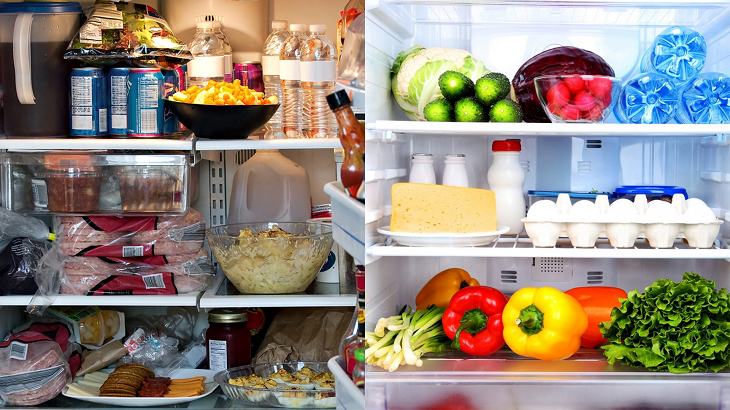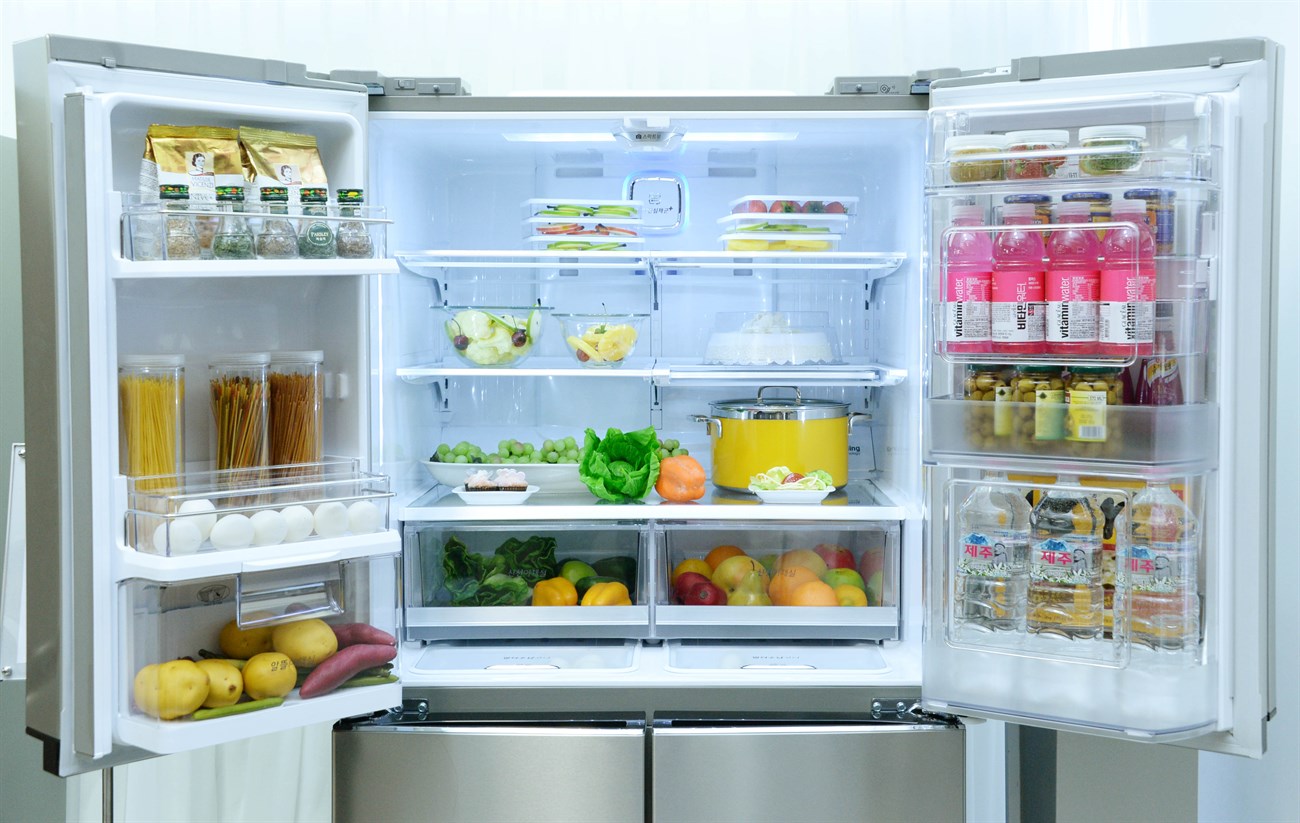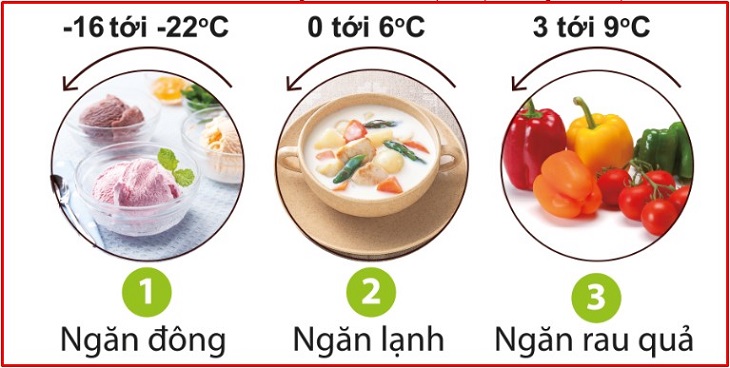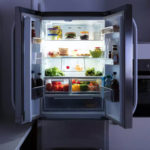1. Clean the refrigerator regularly
To maintain a clean refrigerator, it is essential to clean it regularly. This helps remove dirt and bacteria that can cause diseases, as well as eliminate food odors. Regular cleaning also extends the lifespan of the refrigerator.

3. Organize and preserve food properly
Proper organization and preservation of food in the refrigerator not only helps preserve food and improve cooling efficiency but also keeps the refrigerator neat, tidy, and creates more space for storage.

4. Discard expired or leftover food in the refrigerator
If food or leftovers are stored in the refrigerator for a long time, they can develop unpleasant odors, molds, or spoilage. It is important to discard them as they are no longer safe to consume and can compromise the cleanliness and freshness of the refrigerator. Regularly disposing of expired or leftover food also helps prevent the growth of harmful bacteria.

5. Classify food
Smart refrigerators often have separate compartments for different types of food. It is important to utilize these compartments correctly and avoid mixing cooked and raw food to prevent cross-contamination and reduce odors in the refrigerator.

Cooked food should only be stored for a short period, such as from breakfast to lunch or from lunch to dinner, not exceeding 5-6 hours.
6. Pay attention to the storage time of each type of food
Proper storage time is crucial for maintaining the quality and safety of food. Longer storage can lead to nutrient loss and food poisoning. It is important to be aware of the specific storage time for different types of food.

For example, cooked beef, chicken, and pork can be stored for 1-2 days. Hotdogs and sausages can be stored for 1 week if opened and 2 weeks if unopened. Fruit juice can be stored for 7-10 days if opened and 3 weeks if unopened. Strawberries can be stored for 2-3 days in the refrigerator and 8-12 months in the freezer. Oranges and apples can be stored for 1 week, and grapes can be stored for 1-2 weeks.
7. Adjust the appropriate temperature
Each type of food requires a specific storage temperature. It is important to adjust the temperature of the refrigerator compartments accordingly to ensure the freshness and safety of the food.

Common foods should be stored at 8 degrees Celsius, milk at 4 degrees Celsius, and ice cream at -18 degrees Celsius. Fresh meat should be stored at 3 degrees Celsius, and frozen meat and fish at -18 degrees Celsius.
If you have any comments or questions, please leave them in the comments section, and our staff will respond as soon as possible!
More Useful Advice for Homemakers (Part 2)
Have you heard of the surprisingly easy tips to make cooking and household chores simpler? White radish eliminates the acrid taste of salted meat, adding alum to raw shrimp helps soften it, and adding cold water when frying eggs can make them crispy – these are just a few of the tricks to make your life easier.
Is Refrigerated Leftovers Linked to an Increased Risk of Cancer?
Dr. Lam Van Man, Head of Research, Development and Technology Transfer Department of the Institute of Safety Food, has warned of the risk of food poisoning when reheating leftovers from the refrigerator. But what should we be aware of when it comes to the possibility of these leftovers causing cancer? Here, we explore what the experts have to say on the matter and offer some tips for safe eating.
Discover the Quickest Way to Clean Your Fridge for Tet in Under 20 Minutes
As we approach Tet, preparations for the New Year can seem endless. From cleaning the house to sorting through cabinets, it can be a taxing process. But perhaps the most dreaded New Year chore is refrigerators. No need to fret, though – with these helpful tips, you’ll have a clean fridge in no time – just 20 minutes!





































